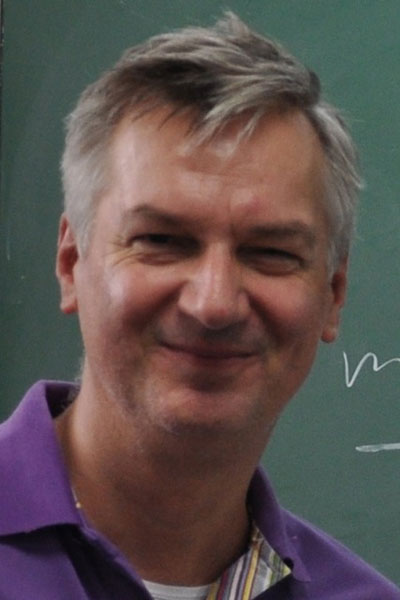Prof. Thomas Christiansen on China-EU Relations

(Thomas Christiansen is Jean Monnet Professor of European Institutional Politics, and Co-Director of the Maastricht Centre for European Governance, Maastricht University.)
Q: What is your understanding of the so-called comprehensive strategic partnership?
A: Many observers have questioned to what extent there is actually a strategy behind the EU's strategic partnerships. Perhaps there is more strategic thinking behind such initiatives on the Chinese side…. In any case, my own view is that the strategic partnership is a recognition on both sides that the EU and China share very close ties and have a lot to gain from further cooperation. Both the EU and China have distinct responsibilities in the current phase of global politics, and need to work together in order to address the serious challenges - economic, environmental, social - that confront all of us in coming years and decades.
Q: Compared with the past, we should say that China-EU relations are quite good. Are there any obstacles? What are they, and how to deal with them?
A: Of course relations are good, compared to the negative experiences and confrontations that came with colonialism, the Korean War or the Cold War. But that is perhaps a very low level to use as a benchmark. More relevant might be the question, whether they are as good as they could be, and in that sense they could probably be better. I believe it is important to go beyond trade as the essence of the relation between Europe and China, and to do more to deepen the understanding between the people on either side. There is increasing tourism in both directions, for example, but it would be good to go beyond sightseeing and bring students, journalists, NGOs and so on together in order to make sure that each side understands better the thinking and motivations of the other. Without such a deepening of understanding at the popular level there will always remain the danger that nationalist sentiment can grow on the foundation of ignorance and cultural misunderstandings.
Q: Mutual trust is important for any bilateral relations. How can China and the EU raise their mutual trust, particularly in the political field? Will there be a day when we proudly claim that at last we have the mutual trust?
A: I think that follows on from the above question: we need to go beyond government and business contacts and involve ordinary citizens, students and young people in meeting each other and learning about the different perspectives that Chinese and Europeans have on many issues. For example, it would help if people in China realise that many young Europeans believe in protecting the environment or defending human rights - issues which might make them critical of practices in China - not because they want to contribute to a Western critique of China, but because they genuinely look at such issues from a global perspective and want to see norms and principles to be universally applied. That is why Europeans are regularly more critical of their own governments or of the United States than they are of the Chinese leadership.
Q: How do you study the bilateral relations between China/Asia-Europe? What kind of methodology and theories do you apply?
A: One has to distinguish between EU-Asia and EU-China relations. With regard to the former, comparative regionalism is often an interesting perspective, for example to identify similarities and differences in the regional cooperation efforts between ASEAN and the EU. Here one can then distinguish between historical foundations, economic interdependence or religious and ethnic diversity, and see to what extent European and Asian developments have proceeded along similar or different lines.
When it comes to EU-China relations, one decision one has to make is whether to approach the study of the relationship more from a rationalist perspective, focusing on the - potentially conflicting - interests of either side, or whether to start from a more social constructivist perspective, with a greater focus on the nature of the interaction, the role of perceptions of the other, and the context of global rules and norms, both written and unwritten, within which the EU and China relate to each other.
Q: You have just published a handbook on EU-Asia relations. Can you please tell us something about the book?
A: The Handbook is the result of a 2-year project that was funded by the European Union under its Jean Monnet programme for the support of European studies. Our intention has been to bring together leading experts from different disciplines (law, economics, political science) and from both Europe and Asia, to provide a comprehensive collection addressing the key issues affecting the relations between the European Union and its partners in Asia. It includes a focus on different dimensions of the relationship - economic, political, security - but also looks at the EU's relations with various institutional structures (ASEM, ASEAN, ARF, SCO).
Furthermore, we include a number of chapters on the EU's relations with key states in the Asia-Pacific region (China, Japan, Korea, Indonesia, Australia). Altogether the Handbook comprises some 40 chapters by more than 50 authors, and our hope is that beyond a useful book that can serve as a reference point for future researchers we have also contributed to the creation of a network of scholars which in itself can help to bring Europe and Asia closer together.
- Back _articles: Prof. Zhang Yong'an on China-European Economic Relations
- Next _articles: Hans Martens on the Future of the European Economy